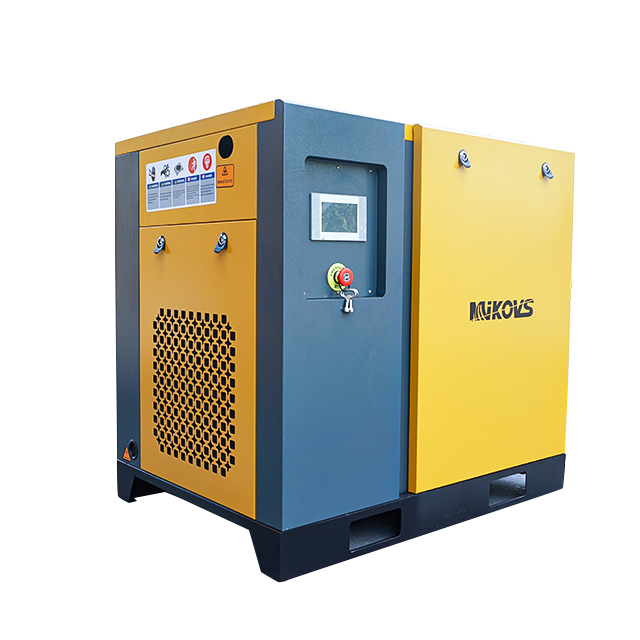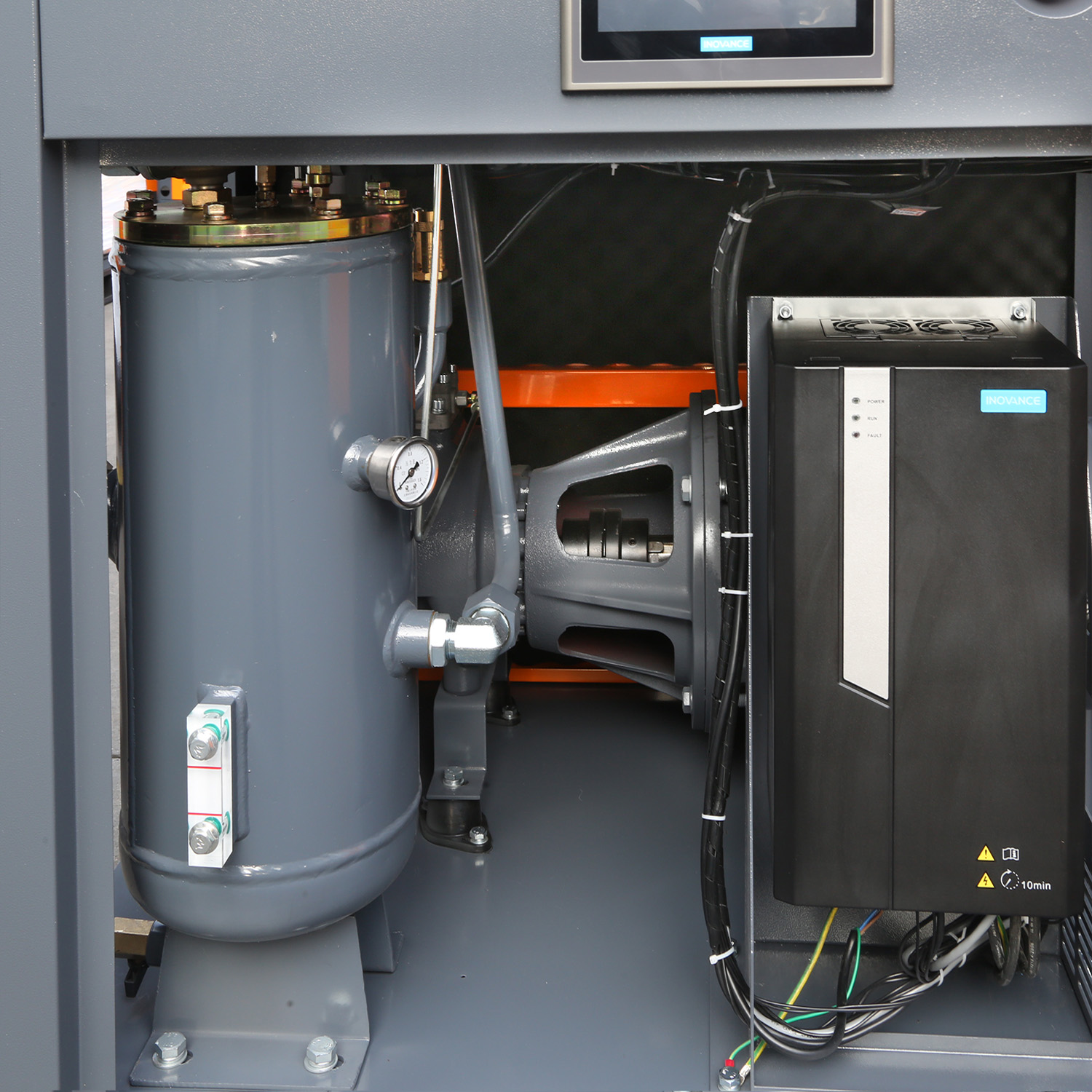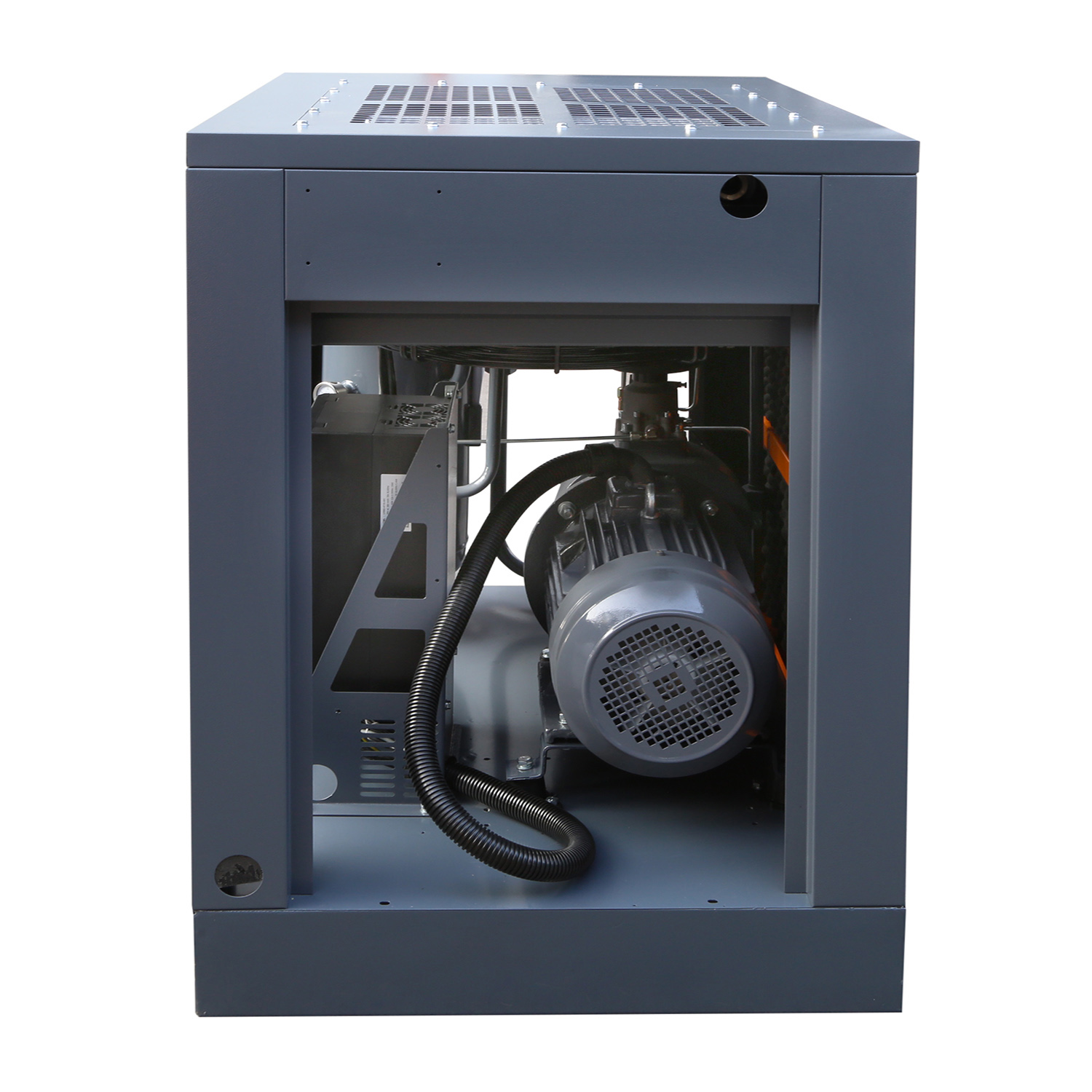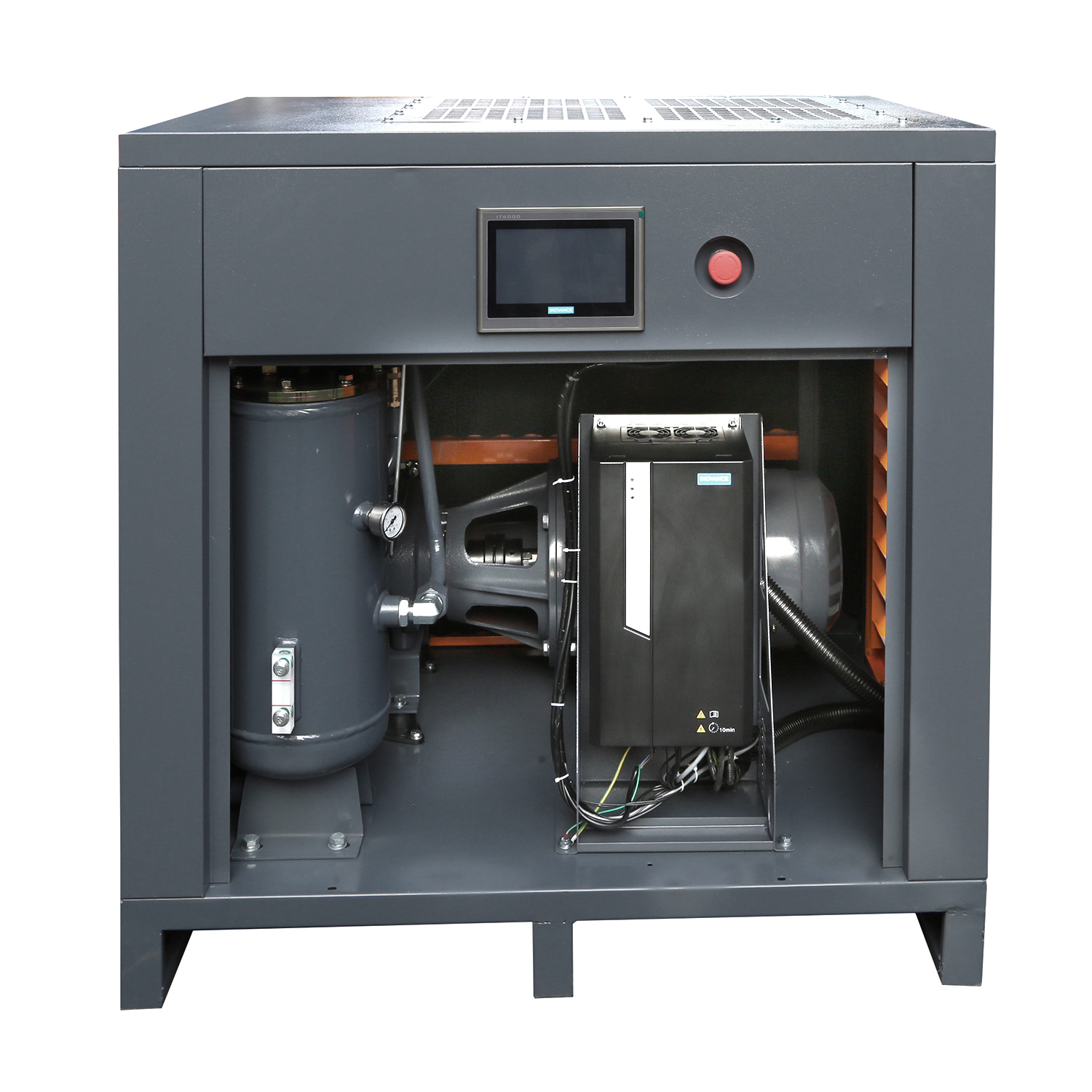Air compressor prevention guide under extreme weather (typhoon, high temperature)
The “sharp turn” of typhoon “Kanu” last week
Let countless hanging hearts finally let go
Even so, everyone should not take it lightly
Unpredictable weather in August
There is a possibility of generating a new typhoon at any time
At the same time, it also faces the threat of extreme weather such as high temperature and heavy rain.
The safety and operation of industrial equipment will also be affected as a result
Among them, the air compressor is one of the important industrial equipment
We should understand in advance and take effective protective measures
Today I will introduce to you how to survive in extreme weather
Ensure the normal operation and safe operation of the air compressor
01 Fixing and checking equipment
picture
·Before the typhoon comes, use strong bolts and brackets to strengthen the connection between the equipment and the ground to prevent the air compressor from being blown down or moved by the strong wind of the typhoon. Flood safety hazards should be investigated in time, transferred in time, and improved in time, especially for those with simple protection measures (such as simple iron-boron, weak buildings, etc.), focus on prevention.
Carry out a comprehensive and detailed inspection of all equipment grounding conditions, equipment appearance, cables, etc., to ensure that the equipment is in good working condition, so as to increase the disaster resistance capability of the equipment. Also check electrical equipment, gas piping, cooling systems, etc. to make sure they are functioning properly.
02 Shut down in time to prevent waterlogging
picture
·Stopping the operation of the air compressor can avoid unexpected failures during typhoons and reduce the risk of damage. Be sure to follow the safety procedures for shutdown operations.
· Do a good job of rainproof and waterproof work for air compressors, power distribution rooms, and electric control systems, and do a good job of inspection after rain. At the same time, check and dredge the sewage system, rainwater drainage system, sewage outlet, etc. in the loading and unloading area and the installation area, and clean up the unsmooth ones, and arrange and cover the trench cover, and the guardrails must be intact and firm.
03 Emergency plan
picture
·Establish an emergency response plan for air compressors during typhoons. Designate a special person to monitor the dynamics of the typhoon and the status of the equipment, and take timely measures, including shutting down the equipment or performing emergency repairs, if any abnormalities are found.
High temperature environment, how does the air compressor work
01 Regular inspection and maintenance
High temperature environment can easily lead to overheating of equipment, so regularly check whether the heat dissipation system of the air compressor is smooth to ensure that the cooling effect of the air compressor is good, and prevent equipment failure caused by high temperature:
Check whether the cooler is blocked. The most direct impact of cooler blockage is poor heat dissipation performance, which makes the unit high temperature. Debris needs to be removed and clogged coolers cleaned to prevent the compressor from overheating.
Check whether the cooling fan and fan motor are normal and whether there is any failure. For water-cooled air compressors, the inlet water temperature can be checked, generally not exceeding 32°C, and the water pressure is between 0.4~0.6Mpa, and a cooling tower is required.
Check the temperature sensor, if the temperature sensor is falsely reported, it may cause “high temperature shutdown”, but the actual temperature is not high. If the oil filter is blocked, it will lead to high temperature; if the temperature control valve is damaged, the lubricating oil will directly enter the machine head without passing through the radiator, so the oil temperature cannot be lowered, resulting in high temperature.
Check the amount of oil, and check the position of the lubricating oil through the oil mirror of the oil and gas barrel. If the oil level is lower than the normal range, stop the machine immediately and add an appropriate amount of lubricating oil to prevent the unit from overheating.
02 Provide good ventilation
·The ambient temperature of the air compressor should not exceed 40°C. The high temperature in summer and the hot weather are more obvious in the factory workshop. Therefore, add fans or turn on ventilation equipment in the air compressor room to ensure air circulation and reduce the accumulation of indoor temperature.
In addition, high temperature heat sources cannot be placed around the air compressor. If the temperature around the machine is high, the intake air temperature will be too high, and the oil temperature and exhaust temperature will also increase accordingly.
03 Control load operation
·In high temperature weather, the load of the air compressor should be properly controlled to avoid long-term overload operation. Adjust the operating status of the compressor according to actual needs to reduce energy consumption and machine wear.




